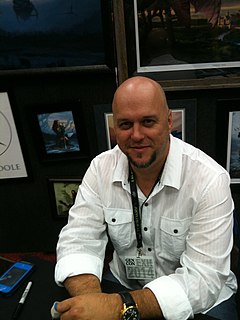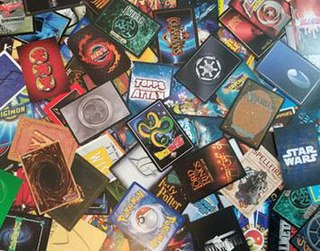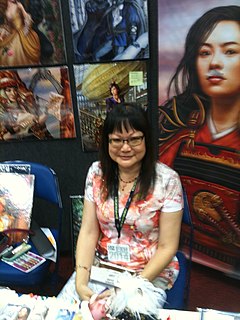Legend of the Five Rings is a fictional setting based on feudal Japan and currently controlled by Fantasy Flight Games.

Legend of the Five Rings is a fictional setting created by John Zinser, Dave Seay, Dave Williams, and John Wick and published by Alderac Entertainment Group in 1995. The setting primarily involves the fictional empire of Rokugan, though some additional areas and cultures have been discussed. Rokugan is based roughly on feudal Japan with influences from other East Asian cultures such as China, Mongolia and Korea. This setting is the basis for the Legend of the Five Rings Collectible Card Game as well as the Legend of the Five Rings Role-Playing Game. Legend of the Five Rings was also the "featured campaign setting" of the Oriental Adventures expansion to the third edition of Dungeons & Dragons, though this book is now out of print.
Legend of the Five Rings may also refer to:
- Legend of the Five Rings (collectible card game), a collectible-card game set in the Legend of the Five Rings setting
- Legend of the Five Rings Roleplaying Game , a role-playing game set in the Legend of the Five Rings setting
- Legend of the Five Rings: The Card Game (living card game) , a living card game set in the Legend of the Five Rings setting
Legend of the Five Rings (L5R) is an out-of-print collectible card game created by Alderac Entertainment Group in 1995 and published until 2015, when it was announced that the game would be discontinued for a rules-incompatible successor that will be part of Fantasy Flight Games' Living Card Game line. L5R takes place in the fictional empire of Rokugan from the Legend of the Five Rings setting, where several clans and factions vie for domination over the empire.

The Legend of the Five Rings Roleplaying Game is a role-playing game originally written by John Wick and published by Alderac Entertainment Group, under license from Five Rings Publishing Group, in 1997. The game uses the Legend of the Five Rings setting, and primarily the nation of Rokugan, which is based on feudal Japan with influences from other East Asian cultures.
Legend of the Five Rings: The Card Game is a Living Card Game (LCG) produced by Fantasy Flight Games. It is a two-player game set in the world of Rokugan. During the game, players take on the leadership of one of the Great Clans which define Rokugani society, and they are cast into conflict against another clan. The conflicts will decide the future of Rokugan. The game is an iteration of the Legend of the Five Rings collectible card game, produced by Alderac Entertainment Group in 1995.









